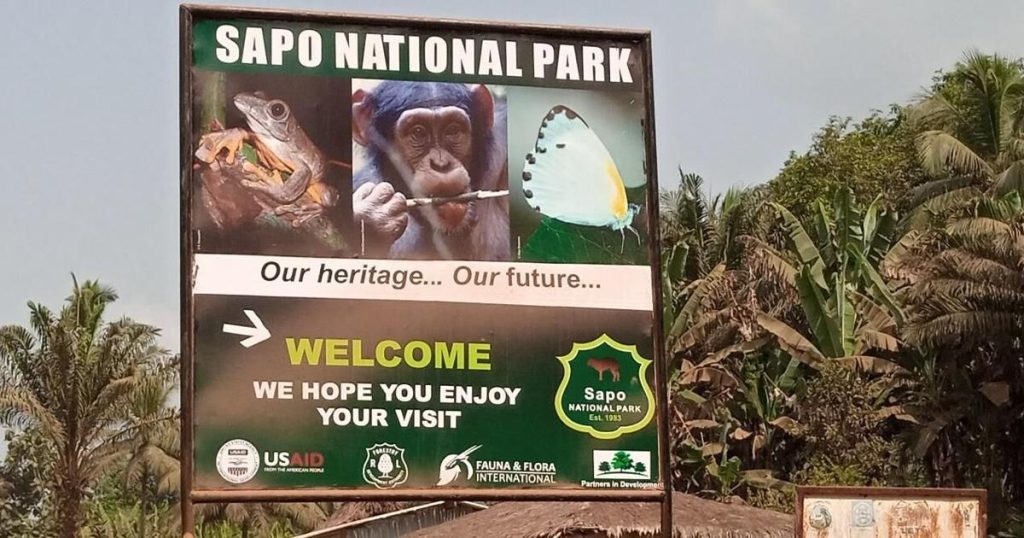Sapo National Park, a critical biodiversity hotspot and Liberia’s sole rainforest reserve, is facing an unprecedented crisis due to escalating illegal activities, prompting an impassioned plea for urgent intervention from Sinoe County Superintendent Peter Wleh Nyensuah. Nyensuah’s recent county-wide tour revealed a devastating picture of widespread environmental destruction within the park, including illegal gold mining, poaching, and unchecked encroachment, all contributing to the rapid degradation of this vital ecosystem. The Superintendent’s heartfelt appeal underscores the perilous state of the park, warning of its imminent demise if decisive action is not taken immediately.
Sapo National Park, encompassing over 1,800 square kilometers, represents not only Liberia’s oldest protected area but also one of West Africa’s most ecologically significant regions. Its rich biodiversity encompasses hundreds of unique plant and animal species, several of which are classified as endangered, including forest elephants and pygmy hippopotamuses. However, the park’s remote location and the lack of consistent law enforcement have created a vacuum, allowing illegal activities to flourish unchecked. These illicit operations are decimating vital habitats, polluting crucial waterways, and displacing both wildlife and indigenous communities who have harmoniously coexisted with the forest for generations.
The gravity of the situation is further amplified by a recent tragedy within the park: the collapse of a mining pit, reportedly trapping at least twelve individuals who had ignored repeated warnings to vacate the protected area. This incident highlights the escalating lawlessness and inherent dangers permeating Sapo National Park, where illegal operators now act with apparent impunity, putting both human lives and the environment at severe risk. The incident transcends the immediate loss of life, symbolizing the broader crisis engulfing the park and underscoring the urgent need for comprehensive intervention.
Superintendent Nyensuah’s appeal is a desperate call to action, directed at President Joseph Boakai, lawmakers, the Environmental Protection Agency (EPA), and international partners. His proposed measures encompass a multi-pronged approach, including the deployment of military-backed security forces to patrol the park, expel illegal occupants, and restore order. He also demands a thorough investigation into the collapsed mining pit and the prosecution of those responsible, emphasizing the need to hold perpetrators accountable for their actions. Recognizing the importance of engaging local communities, Nyensuah advocates for deploying trained forest rangers, implementing sustainable development initiatives, and promoting eco-tourism, agriculture, and education programs to provide alternative livelihoods.
Beyond immediate security measures, Nyensuah emphasizes the crucial role of education in fostering environmental awareness and responsibility. He calls for a national education campaign to instill a sense of ownership and stewardship among Liberians, recognizing that long-term conservation success hinges on public support and understanding. His emotional appeal transcends a mere policy recommendation; it represents a deep-seated concern for the future of Liberia’s natural heritage and a recognition of the interconnectedness between environmental protection and national well-being.
The urgency of the situation has galvanized environmentalists and civil society groups, who echo Nyensuah’s call for immediate action, urging the government to treat the crisis in Sapo National Park as a national emergency. They recognize that the park’s fate is intertwined with Liberia’s broader struggle to balance economic development with environmental sustainability. The plight of Sapo National Park serves as a stark reminder of the critical choices facing nations grappling with competing priorities, highlighting the imperative to safeguard invaluable natural resources for future generations. The park’s survival depends on swift and decisive action, reflecting a national commitment to environmental preservation and sustainable development.














